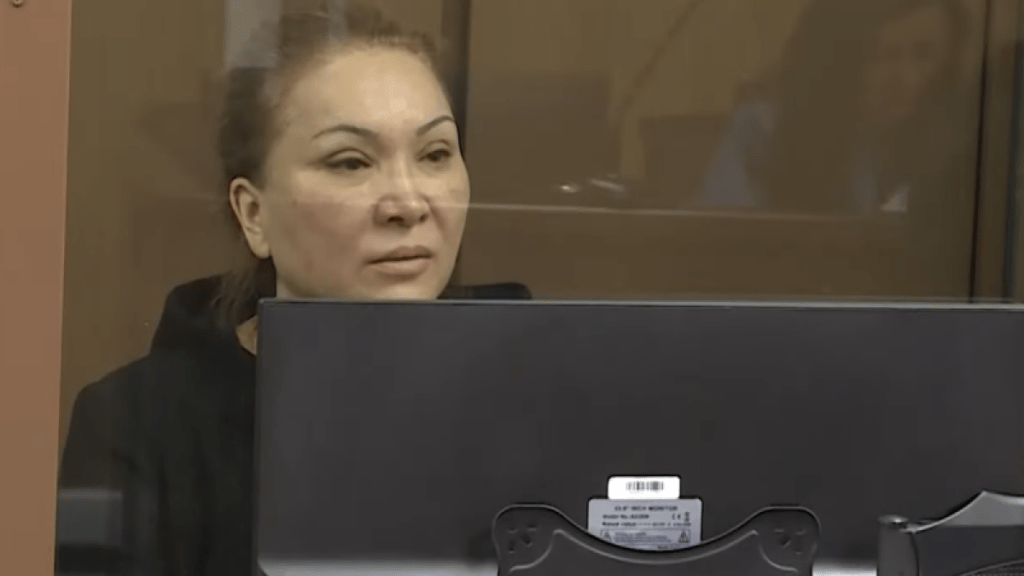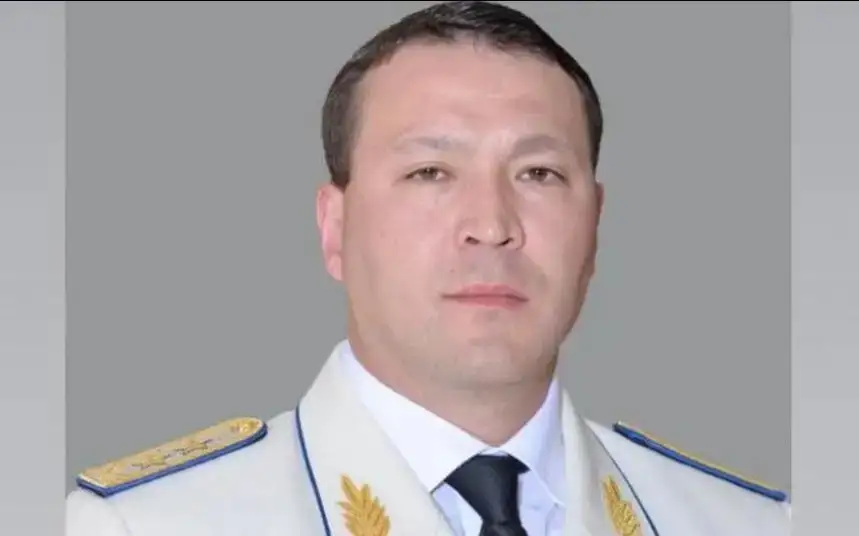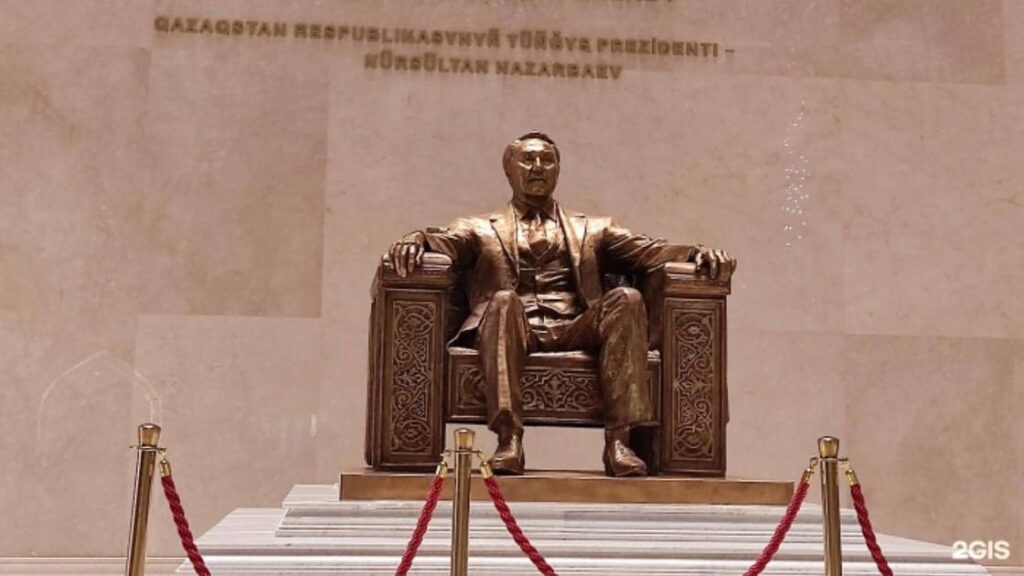Viewing results 1 - 6 of 10
The Anti-Corruption Service of Kazakhstan has completed its investigation into the criminal case against Gulmira Satybaldy - the ex-wife of Kairat Satybaldy - nephew of former President of Kazakhstan, Nursultan Nazarbayev. Ms. Satybaldy is accused of illegal imprisonment, extortion on a large scale, and arbitrariness which led to grave consequences. The criminal case was transferred to a specialized court in Almaty. According to law enforcement agencies, other information is not subject to disclosure at this juncture. Gulmira Satybaldy was originally detained by the anti-corruption service on March 16, 2022, accused of abductions and aiding the commission of a crime. A year ago this month, she was sentenced to seven years, but has since been incriminated in further crimes. Gulmira Satybaldy's ex-husband, Kairat, was convicted of abuse of power and embezzlement of funds from the state company, Kazakhtelecom. According to official data, since 2022 he has repatriated more than 700 billion tenge ($1.58 billion) worth of illegal assets to the state.
An Astana court has found Samat Abish, a nephew of Kazakhstan's former president Nursultan Nazarbayev, guilty of "exceeding power or official authority" and given him an eight-year suspended sentence. Abish, the former deputy chairman of the National Security Committee (KNB), had his criminal case classified as "secret," and all court sessions were held behind closed doors. "By the court's verdict, [Abish] was found guilty of committing a crime under Part 4 of Article 362 of the Criminal Code of the Republic of Kazakhstan, and sentenced to eight years of imprisonment with deprivation of the right to hold certain positions for 10 years. On the basis of article 63 of the Criminal Code of the Republic of Kazakhstan, it [was] decided to consider the appointed punishment as conditional", reads a message from the inter-district criminal court of Astana. Mitigating circumstances for Abish included his young children, and the fact that he admitted his guilt and showed remorse. The court made an additional ruling to strip Abish of all of his state awards. Abish is the son of Satybaldy Nazarbayev, the younger brother of Kazakhstan's first president. Abish's father died in 1981 in a car accident. Nursultan Nazarbayev's nephew was appointed deputy chairman of the National Security Committee in 2013, and in 2015 became first deputy. Abish lost this position on January 17, 2022 after the unrest in the country and the subsequent detention of KNB head Karim Masimov. At the time, the country's prosecutor general said that Abish was being held as a witness in the investigation into the unrest. In September last year it emerged that a criminal case had been opened against Abish. He came under investigation after the former head of a KNB department said that he had been following orders from his first deputy during the unrest that January. Abish was charged with abuse of power and abuse of authority. Another nephew of Nursultan Nazarbayev, Samat Abish's older brother Kairat Satybaldy, is accused of money laundering. He has been in prison since 2022 on charges of grand embezzlement. The trial is scheduled for April 1.
Karaganda activists insist on returning Nursultan Nazarbayev Avenue to its former name, Peace Boulevard, which it bore until 2019. However, the authorities refused to coordinate eight pickets planned in different parts of the city. For example, in one place, near the Stanislavsky Theater, they explained the reason for their refusal as "snow removal." Reasons for the other refusals remain unknown, as representatives of the Akimat redirected journalists from one employee to another for two days. The actions were to be held near monuments and state institutions on February 17th. The organizer of the action, Aitkozha Fazylov, said that if the proposed place is not suitable for the actions, the authorities are obliged to offer an alternative option. He also said that he had already been refused approval for the picket fifteen times already According to him, Zhumabai Iskakov, another organizer of the action, the deputy akim of Karaganda explained their refusal by stating that holding a picket could lead to uncontrolled actions, whilst the removal of snow from the area was again cited as the second reason. However, according to Iskakov, sooner or later the renaming will happen anyway, so if people are already coming forward with this proposal the process should not be delayed. In September 2022, having briefly been renamed Nursultan after the former president, the capital of Kazakhstan returned to its former moniker of Astana. But whilst monuments to Nazarbayev are now actively being removed, the fact that there has been no official decision on reversing the renaming of streets in regional cities remains a cause for consternation.
The year 2022 was marked by significant changes in Kazakhstan, particularly the end of Nursultan Nazarbayev's rule. This change was symbolized by the removal of his monument on 12 January of 2024 which stood in front of a university in Astana. The monument was taken down and put into storage, explained by the Ministry of Defense as a result of changing the university's name. During the violent protests in January of 2022, protesters in Taldykorgan tore down another monument to Nazarbayev located in front of the mayor's office. Prior to this, Nazarbayev held substantial influence in the country, with the capital named after him and streets bearing his name. According to Radio Free Europe, experts say that after the January events, Nazarbayev's influence waned while that of the current president Kassym-Jomart Tokayev increased. This began a period of distancing from Nazarbayev within the country. The capital returned to its former name of Astana, the status of "Leader" granted to Nazarbayev was removed from the Constitution, and the protections that shielded him and his family from criminal prosecution were lifted.




